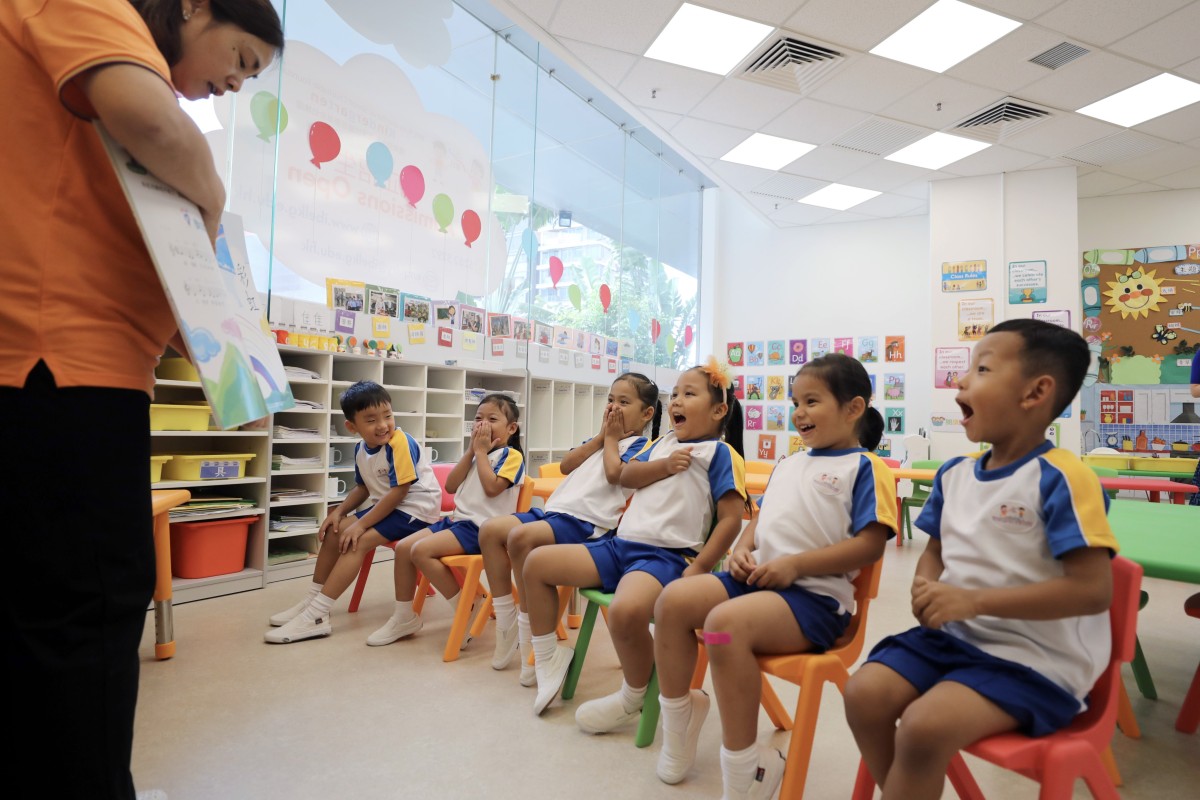 Education Bureau says mock interviews put undue pressure on children applying to primary school, but parent groups beg to differ. Photo: Xiaomei Chen
Education Bureau says mock interviews put undue pressure on children applying to primary school, but parent groups beg to differ. Photo: Xiaomei ChenDespite the Education Bureau’s criticism of kindergarten mock interviews as putting undue pressure on children, parent-teacher groups in Hong Kong have defend the practice. They argue that it prepares children for the competitive primary school admissions process.
In some recent inspection reports on kindergartens, the Education Bureau said that such mock interviews put undue pressure on children and called for them to be discontinued.
But representative groups said the move would only lead parents to seek out such interview courses from private tutors.
More than 70 inspection reports compiled by the bureau were released on September 6. Thorough checks were conducted by the bureau’s Kindergarten Inspection Section and took between one and four days.
In its reports, the bureau criticised two preschools – Kowloon Cannan Anglo-Chinese Kindergarten in To Kwa Wan and Hong Kong Young Women’s Christian Association On Ting Nursery School in Tuen Mun – for conducting mock admission interviews for children.
“The school must cancel the Primary One mock interview to avoid putting unnecessary pressure on children,” the report on the Kowloon preschool said.
Similarly, the report on the Tuen Mun institution said its training was “not conducive to helping children adapt to promotion to primary school and tends to put unnecessary pressure on them”, and called for their cancellation.
Students say Hong Kong needs a more progressive approach to sex education
Why do kindergarteners need to sit for interviews?
In Hong Kong, applicants to government and aided primary schools do not have to go through interviews to get admitted.
However, the children may have to sit for an interview if they opt for “door-knocking”, a process of directly approaching their preferred schools after central allocation results are released if they are not satisfied with the one given to them.
By contrast, private schools and international schools, as well as semi-private primary schools under the government’s direct subsidy scheme (DSS), require applicants to go through an interview process.
A number of popular schools even conduct multiple interview sessions to test applicants’ abilities in reading and spoken English and Chinese, creativity, storytelling and image-based tests such as spotting differences between pictures or arranging story cards in the right order.
What do parent-teacher groups think?
Robin Kwan Oi-ping, chairwoman of the Tuen Mun Federation of Parent-Teacher Associations, said most of the parents supported preschools holding such mock interviews and pushed back against the bureau’s criticism.
“Parents are in favour of it as a way for their children to prepare and get experience of entrance interviews,” she said. “All popular schools conduct interviews and most parents want their children to enter these schools.”
Kwan said most preschools offered interview training sessions as there was a demand among parents. Such sessions would not impose pressure on children if parents framed the practice correctly by “not blaming the kids for not performing well”, Kwan added.
Ngai Shan-ting, president of the Federation of Parent-Teacher Associations, Kowloon City district, attributed the preponderance of such training sessions to the design of the whole education system, saying interview skills had become essential across different levels.
“If parents want their children to pursue a quality education, students have to attend admission interviews, from kindergarten all the way up to university,” she said.
“The Education Bureau should not blame the kindergartens or ban mock interviews across the board, as the admission process of some primary schools does include interviews.”
Ngai noted that the preschool in her district which had been singled out had a “majority” of “aggressively high-achieving” parents who wanted their children to have interview training, and the bureau’s criticism did not make sense to them.
“Those kids will inevitably have to face admission interviews as their parents will probably sign them up for DSS or private schools,” she said.
